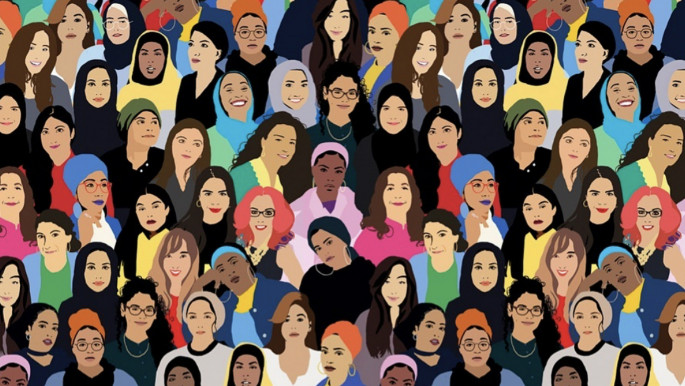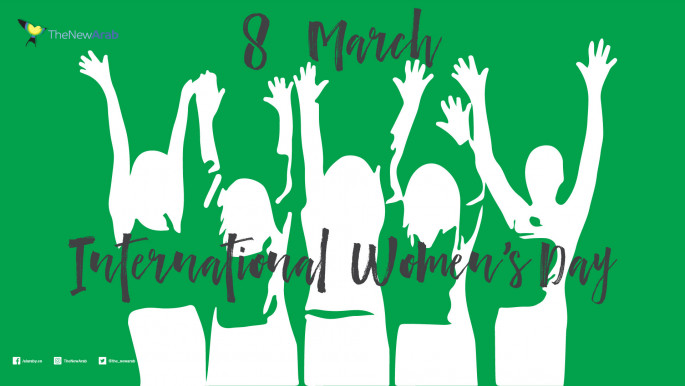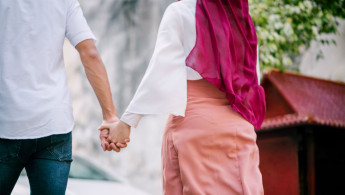The UK doesn't recognise Islamic marriages. Here's what Muslim women need to know
It may come as a surprise to both Muslims and non-Muslims, that the UK's Marriage Act of 1949 has not been updated, meaning only the Church of England, Jewish and Quaker marriages can be legally registered.
This is especially alarming as a survey in 2017 showed that nearly two-thirds of Muslim women had not performed a civil ceremony alongside their nikah (the faith-based vows) yet all had participated in an Islamic ceremony. So when you go to a Muslim wedding, if it is not registered under English law separately, it won't count as a marriage in the UK.
"Islamic faith marriages are not recognised as they do not fall within the definition of marriage as described within the Marriage Act 1949. That is the ceremony needs to be conducted by a minister of a church or chapel," said Aisha Hussain, a solicitor from Ten Legal.
This ruling was a result of the 2018 high court case between couple Nasreen Akhter and Mohammed Shabaz Khan who got Islamically married (a nikah) in front of 150 guests in Southall, West London in 1998. However, when Akhter petitioned for a divorce, Khan blocked the move, stating that they were not married under English law and thus, she was not entitled to her rights as a wife.
Under English law, there are three categories for marriage: valid, void and non-marriage. Valid marriages mean both men and women can get the benefits of divorce, void marriages can be nullified and non-marriages cannot be legally ended because they legally never existed.
 |
Valid marriages mean both men and women can get the benefits of divorce, void marriages can be nullified and non-marriages cannot be legally ended because they legally never existed |  |
So why don't more Muslim women have a civil marriage as well as their nikah?
 |
|
| Read also: From muzmatch to Minder, Muslim millennials are using 'halal-dating' apps to do their own matchmaking |
Firstly, most won't realise that their marriage is not counted if there's no English registration ceremony too.
If you get married in a Muslim country abroad and return to the UK, your marriage then is accepted. But if you get married here as a Muslim, it will not be so there is also understandable confusion around the semantics in marital law concerning Muslims.
There's also the sexist pressure to not ask for too much, as the wife. The idea that you’re getting married and don't need two wedding days is culturally pressed upon women.
"Islam asks women to stand on two feet within a marriage contract," writes Aina Khan OBE in her essay for It's Not About The Burqa, "How Not To Get Married".
"But today, women are not even asking for their basic human rights because it is considered unfeminine and immodest."
 |
Islam asks women to stand on two feet within a marriage contract... But today, women are not even asking for their basic human rights because it is considered unfeminine and immodest |  |
There's the case of complacency. The idea that the registration is something to get around to do eventually. It can lead up to years and decades of women living in situations where if anything goes wrong, they are left with no rights as a wife within English law and in many ethnic minority cultures in Britain, seen as the black sheep for getting a divorce. Even if Islamically, it is well within their rights.
"The Akthar V Khan case was different because they had held themselves out to be married and undergone a similar ceremony to English marriages. The judge therefore declared that their marriage came within the scope of the MCA 1973, so they could get a decree of nullity (which allowed the parties to also bring financial claims against each other)," explained Hussain.
But for the majority of women, it won't be as easy as this. As most Islamically married Muslim women in the UK do not have civil partnership rights, those in 'safe relationships' will continue to stay in their marriages for the sake of it, but in the most dangerous of situations it could enable emotional, physical and mental torture.
The rise of Muslim women to be fear-mongered into staying in a toxic marriage because they are corned into this idea that in all ways, it is safer for them to remain married, is anticipated.
"For the most marginalised women, this means they will be left with little or no protection. They may lose their homes, no financial support from their spouse and have to rely on family or the state to look after them," reflects Hussain. "The most vulnerable will be left open to abuse."
 |
For the most marginalised women, this means they will be left with little or no protection. They may lose their homes, no financial support from their spouse and have to rely on family or the state to look after them |  |
Muslim women will also be expected to turn to sharia councils, who have limited jurisdiction when it comes to children and finance.
"The latest academic research by Cardiff University in 2011, showed that half of the women applying to sharia councils for Islamic divorce were in unregistered marriages," Khan also wrote in her essay.
Sharia councils can be expensive and arguably, biased depending on who from the community is looking over the case.
And what about the generations of women who don't have access to this knowledge on their now nulled marriage within the UK?
Our grandmothers who speak a blend of their mother tongue and English when chit-chatting about what they've grown in their gardens, the refugee women on the bus who may not be aware of their rights, the recently widowed or about to be divorced women?
 |
|
| Read also: 'It was about starting a dialogue': A year on since It's Not About The Burqa |
What about the women who have been taught the patriarchal reading of the Quran via oral teachings and believe they have no right to divorce — and now they have no right to divorce because their marriage is not seen to exist in the eyes of English law?
Yet there are things Muslim women can do to ensure their safety.
"Muslim women in the UK who are not married under the UK law need to either get their marriages registered as soon as possible or have their nikah contract agreed in terms that protect their future rights in the case of a marriage breakdown," advises Hussain.
"For those who are about to marry, either register the marriage at the same time as the Islamic ceremony or have a watertight nikah contract prepared before the marriage where the financial terms are agreed like a pre-nuptial agreement."
If anything does go wrong and you do not have the above, you can attempt to claim under the civil law Trusts of Land and Appointment of Trustees Act 1996.
There's also a plead to Muslim women to register their marriage regardless of how long they have already been married, as it's never too late.
At the beginning of Aina Khan OBE's essay in It's Not About The Burqa, she writes, "Marriage law has never kept pace with immigration".
 |
Marriage law has never kept pace with immigration |  |
That essay was written in 2018 and now two years later, Muslim women in England, who are solely Islamically married are in a more dire condition in matters of the law.
In addition to actively trying to change the law so Islamic marriage can be seen as the norm and maintain accountability and the safety of Muslim women, it's also up to us, as Muslim women, to make sure the knowledge we’re receiving is accurate, non-biased as well as critiqued in a conscious manner so we know what we're signing up for.
Follow her on Twitter @tahminaxbegum
Click on the Special Contents tab below to follow our special coverage for International Women's Day 2020:
 |
|



